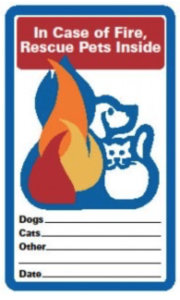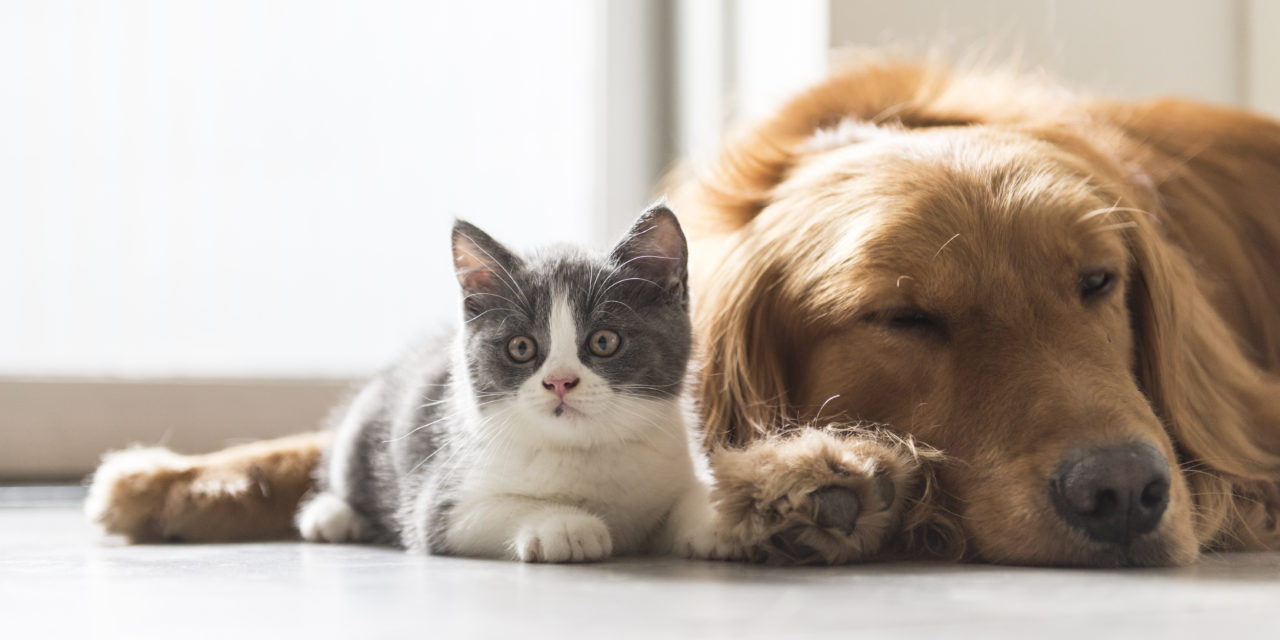 July 15th is National Pet Fire Safety day and it is important to know how to protect your pets in the case of an emergency and to take extra precautions to avoid fire related emergencies. According to the National Fire Protection Association, approximately 500,000 pets are affected each year by house fires and nearly 1,000 home fires are accidentlly started by the homeowner’s pets.
July 15th is National Pet Fire Safety day and it is important to know how to protect your pets in the case of an emergency and to take extra precautions to avoid fire related emergencies. According to the National Fire Protection Association, approximately 500,000 pets are affected each year by house fires and nearly 1,000 home fires are accidentlly started by the homeowner’s pets.
The American Kennel Club and ADT Security have some great tips on how to prevent your pet from starting a fire as well as to keep your pet safe. Before leaving the house, develop a routine of checking for these potential fire hazards:
- Extinguish Open Flames—make sure that pets are not left unattended around any open flame before leaving the room or your home. Pets are generally curious and tend to investigate new things. Try investing in flameless candles. These contain a battery instead of an open flame and are safe if knocked over or left on.
- Remove Stove Knobs—if you are leaving the house, remove the knobs of the stove or protect them with covers. Always make sure that all ovens, griddles, stove stops, and electric skillets, are off and/or unplugged before leaving your home. A report from the National Fire Protection Association shows that a stove or cook top is the number one piece of equipment involved in your pet starting a fire.
- Be Careful on Deck—If you leave a glass bowl on a wooden deck the sun’s rays can heat up and cause the deck beneath it to light on fire. Instead, consider using a stainless or ceramic bowl instead.
 Keep Your Pets Safe!
Keep Your Pets Safe!
- Secure Young Pets—With younger animals, like puppies, make sure that they are away from any fire hazards while you are away. Try investing in baby gates or if you will be gone for a short period of time, use a crate or kennel.
- Keep Pets by the Door—If you are leaving, make sure that pets have their collars and leashes should be by the door. These should be easily accessible just in case firefighters need to rescue them. Pets should also be left by a door or entrance where they can easily be found.
- Use a Smoke Detector—Make sure that you routinely test the batteries in your smoke detector. A great reminder is to replace them during the time change, twice a year. If you want extra security, there are smoke detectors that are connected to a monitoring center so emergency responders can be contacted when you are not home. This provides an extra layer of protection that helps ensure the safety of your pets.
- Add a Pet Alert Window Cling—Print out this article, cut out the in case of fire image, fill out the information, and tape it to your door. Other information you may want to include is the name and number of your Veterinarian. This information saves rescuers time when locating your pets. Make sure to update the number of pets if this information changes.







